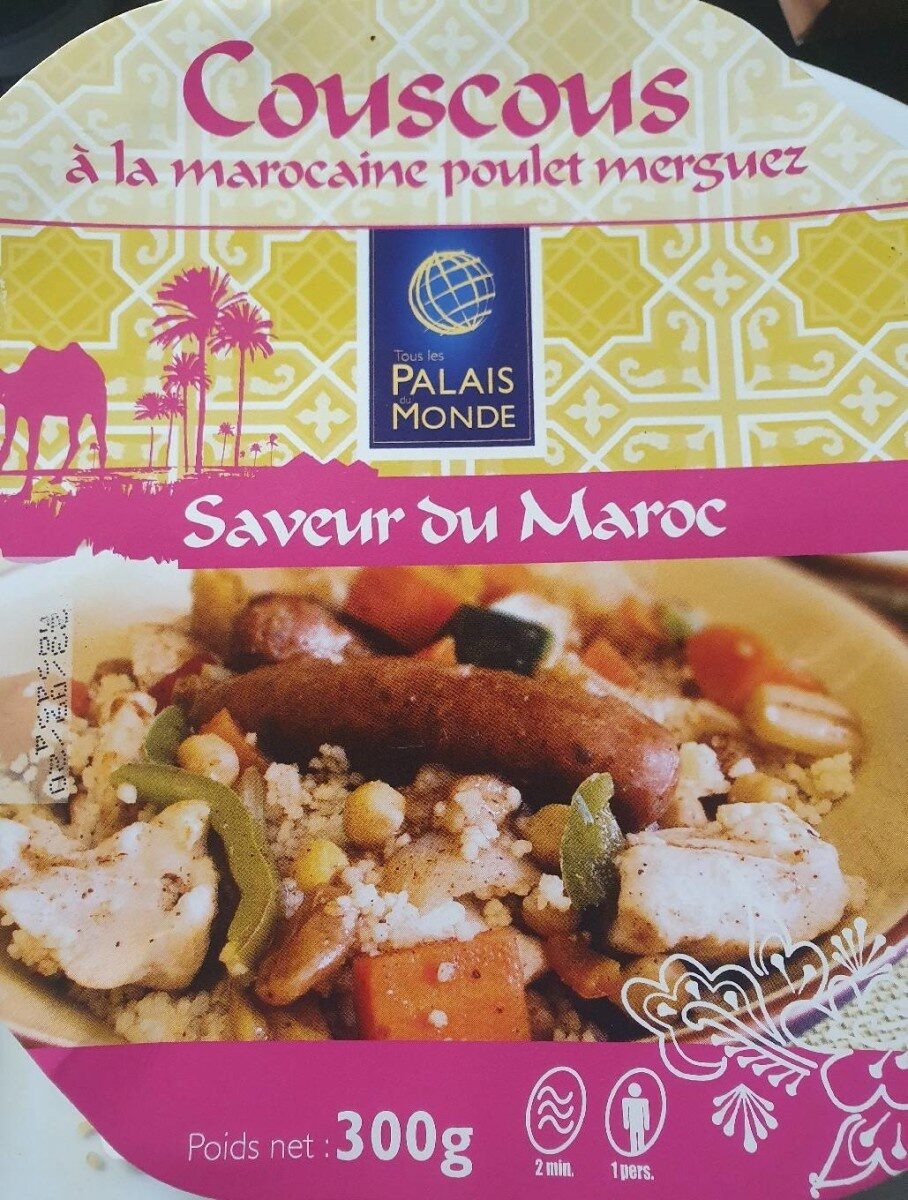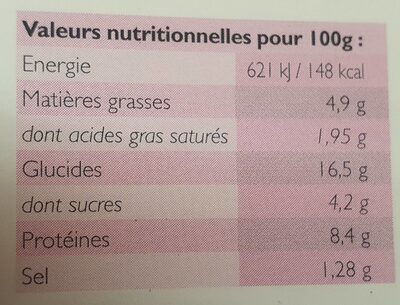Couscous - Tous les Palais du Monde - 300 g
This product page is not complete. You can help to complete it by editing it and adding more data from the photos we have, or by taking more photos using the app for Android or iPhone/iPad. Thank you!
×
Barcode: 3353820009041 (EAN / EAN-13)
Quantity: 300 g
Brands: Tous les Palais du Monde
Categories: Meals, Fresh foods, Savory semolina dishes, Fresh meals, Prepared couscous
Manufacturing or processing places: France
Traceability code: FR 93.047.034 CE - Montfermeil (Seine-Saint-Denis, France)
Countries where sold: France
Matching with your preferences
Environment
Packaging
Transportation
Report a problem
Data sources
Product added on by tacite
Last edit of product page on by packbot.
Product page also edited by kiliweb, quechoisir, segundo, yuka.LZJSIsShE80vQt_c3KQF_CnlE-7rOsVjN3Imow.
If the data is incomplete or incorrect, you can complete or correct it by editing this page.










